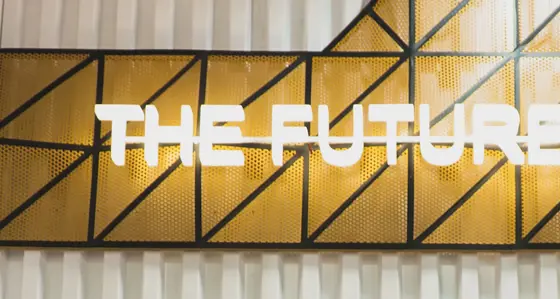
Making sustainable choices easier for consumers
12 November 2021
At COP26 on Tuesday, we heard Reckitt and Sainsburys agree that consumers are “swimming against the tide” when it comes to trying to make positive product choices and informed decisions due to a multitude of certifications and sometimes confusing claims. The onus is on brands and retailers to make these considerations simpler for consumers, and by doing so they can influence positive choices and behaviour change. However, due to the sheer noise and complexity surrounding climate change and sustainability, putting this into practice is harder than ever.
The climate crisis will be the defining theme of our generation and, on the face of it, consumers appear to be saying all the right things. Media, both social and traditional, is used daily to shine a light on people, brands and institutions who don’t adhere to rapidly changing consumer sentiments. With engagement at an all-time high, it’s easy to assume that brands and retailers alike could ‘ride the wave’ and passively influence consumer behaviour.
Enter the ‘intent – action gap’. Research conducted by Baringa* found that whilst consumers on the whole claim that they want to make positive changes in buying behaviour, this doesn’t always materialise when at the checkout. Our research shows that 41% of consumers think about environmental issues either before or at the point of purchase. This rises to 61% in 18-24 years old, however, we see that only 23% are prepared to go out of their way to make ethical choices and are prepared to pay more to do so.
Price is still king and for many will remain the most important barrier to making a more sustainable choice. However, we are seeing trust becoming a much more important factor in buying behaviours. During Tuesday’s session ‘Which?’ argued that access to trustworthy information and concerns about greenwashing were the largest barriers, behind affordability, that inhibit a consumer from making a more positive choice.
So, how can we close this gap? Influencing and changing consumer behaviour is inherently difficult and often expensive to accomplish. In the midst of a climate crisis where volatility in consumer behaviour is rife, it can be difficult to know where to place your bets. We believe brands and retailers need to invest in a trusted consumer relationship in order to successfully influence buying and consumption behaviours in the long term.
We’ve outlined four immediate priorities for brands and retailers to consider as they build consumer trust in order to positively influence behaviour:
- Provide simple and clear data to consumers: Brands and retailers should push for a cross-industry data alliance. This could include lobbying for a consistent approach to evaluating the impact of a brand or product in the packaged goods industry, similar to the nutritional scoring in place already. Suppliers, manufacturers and retailers must come together to deliver simple and clear information so that consumers can make informed choices.
- Support and empower consumers on the journey: For many brands and retailers, their largest emissions come from downstream consumption or through indirect use: their ‘Scope 3’ emissions. To reduce these emissions, it is imperative that consumers are not only made aware of the role they play in driving positive change but are actively supported on this journey and are influenced in the right way. This means delivering sought after sustainable innovation and focusing on the end-to-end consumer experience during the lifecycle of a product. Without consciously designing a consumer-centric experience, new business models which respond to the need to increase the longevity and circularity of products (such as refill and rental) will struggle to overcome barriers to adoption such as price, quality and convenience.
- Test, learn and optimise messaging in the pursuit of positive change: Behavioural economics research can be carried out on messaging and calls to action to understand what type of content would influence buying and usage behaviour across different consumer groups. For example, home insulation messaging focussed on benefits aligned with lower household bills and a cosier living room in winter as opposed to leading with lowering emissions – this subtle insight-led approach has resulted in widescale adoption. This content needs to be created with the intent to drive real and positive action - underpinning this is trust and authenticity. Brands and retailers who are not well-trusted risk well intentioned messaging coming across as patronising or an attempt to greenwash.
- Evolve your understanding of your consumer and explore influencing through loyalty programmes: Insight and data can be leveraged where a brand or retailer has a direct relationship with their consumer through direct to consumer (D2C) channels or a loyalty / subscription programme. Through understanding what drives certain choices, by whom, and how, enables targeted campaigns, personalised rewards and promotions to influence consumers to make more positive choices. Many consumers may want to choose more sustainable items but are simply not able to do so because of affordability. A personalised behavioural nudge and a wider understanding of what will tip the balance when it comes to the value perception is crucial.
Influencing positive change is needed right now.
We are in a time where trust is hard-won and fragile. At Baringa, we feel it’s vital that brands and retailers take a more transparent stance. We believe it’s important for brands and retailers to work together to accelerate efforts to remove barriers. By doing that, consumers can make simple, easy and informed choices. Without that, behavioural change will lag behind what’s needed now.
* Baringa survey of online panel interviews among 1,006 UK “online shoppers”, June 2021
Related Insights

Preparing for the EU's regulation on deforestation-free products
Is your supply chains prepared for the incoming EU Deforestation Regulation? In this article we share what you need to know in preparation for the new regulation, and how Baringa can help you.
Read more
Achieving the benefits of a multi-brand product portfolio
Download our blog on achieving the benefits of a multi-brand product portfolio.
Read more
Trading team optimisation: time to add value
Trading team optimisation: How team structures and ways of working can help trading teams make fast, informed decisions.
Read more
Become digital podcast: Episode 2 - Pret a Manger
Baringa are joined by Pret a Manger to discuss their digital journey, strategies, response to Covid-19, Pret's coffee subscription service and more
Read moreIs digital and AI delivering what your business needs?
Digital and AI can solve your toughest challenges and elevate your business performance. But success isn’t always straightforward. Where can you unlock opportunity? And what does it take to set the foundation for lasting success?